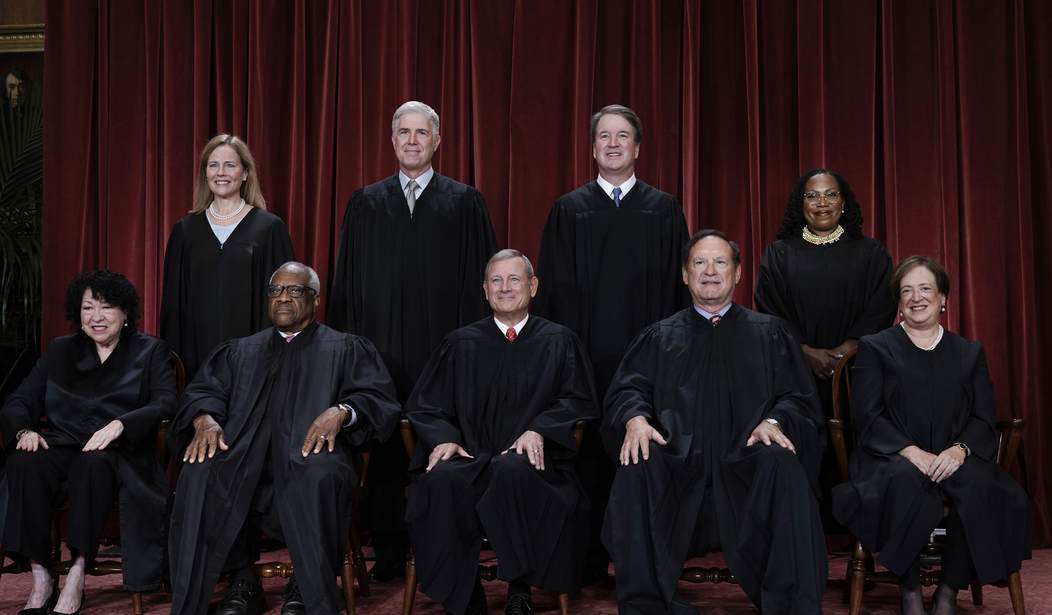The Supreme Court deadlocked 4-4 this week on a closely watched case involving the nation’s first public religious charter school, effectively upholding a lower court ruling that blocked the school’s approval. Justice Amy Coney Barrett recused herself from the case, leaving the court one vote short, and many on the right are furious about it.
The split means that the Oklahoma Supreme Court’s decision against the St. Isidore of Seville Catholic Virtual School will stand, at least for now. Barrett’s absence is particularly frustrating for conservatives, who expected the Donald Trump-appointed justice to help secure a win for religious liberty in what could have been a landmark case. With the court’s decision offering no guidance, the issue remains unresolved nationally, and religious school advocates are left waiting, disappointed and disillusioned.
As troubling as this story is, the first thing that I thought about wasn’t Barrett’s decision to recuse herself — it was the failure of Justice Elena Kagan to recuse herself over the years on cases related to Obamacare.
To put things in perspective, Democrats have made a habit of demanding recusals from Republican-appointed justices, often based on the thinnest pretexts. They’ve insisted that Justices Thomas and Alito step aside from January 6-related cases — not because of any direct involvement, but because Thomas’s wife sent private text messages to Trump allies questioning the 2020 election results and because an upside-down American flag flew outside Alito’s home for a few days after the Capitol riot. They demanded that Justice Kavanaugh recuse himself from cases involving the Mueller investigation. Justice Gorsuch was called on to recuse himself from an environmental case last year.
During her confirmation hearings, Democrats pressured Barrett to commit to recusing herself from an upcoming Obamacare case simply because, before joining the bench, she had criticized the Supreme Court’s 2012 decision that upheld the law’s individual mandate. For the left, that opinion was enough to try to disqualify her from sitting in on the case.
Recommended: Ex-Obama Aide Makes Bombshell Admission About Biden's Health Cover-Up
But they had no problem when Kagan, who literally helped defend the law from inside the Obama administration, participated in multiple Obamacare cases as a justice.
Barack Obama nominated her to the Supreme Court after she served as his solicitor general—the very lawyer who defended Obamacare in federal court. Yet when the constitutionality of Obamacare came before the court, Kagan didn’t step aside. She participated. Repeatedly.
By law, specifically, 28 U.S. Code § 455, Kagan had a duty to recuse herself. The statute clearly says any judge “shall disqualify himself in any proceeding in which his impartiality might reasonably be questioned,” including when that judge “participated as counsel” in the case. That described Kagan’s role perfectly. She wasn’t some bystander. She was the administration’s top legal defender of the very law being challenged.
And they knew it. The Obama administration and its allies in Congress didn’t just turn a blind eye; they actively worked to hide her involvement during her confirmation hearings. Documents were withheld, questions were dodged, and the press barely blinked.
The double standard is nothing short of staggering — and conservatives have every right to be outraged. Whether Barrett’s recusal from the religious liberty case was truly warranted is debatable. But what’s far more troubling is Kagan’s refusal to recuse herself from cases where her conflict of interest was not just obvious but undeniable. That’s the kind of selective ethics that erodes trust in the court, and it’s long past time to call it out.










